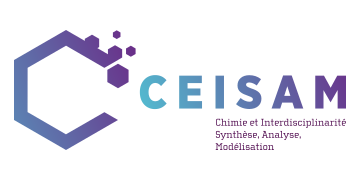Lenny HADDAD, PhD student in CEISAM MIMM team, will defend her thesis entitled “Characterization and authentication of dairy products by high resolution metabolomic and isotopomic profiling” on November 3th 2021 at 10h in CEISAM’s conference room “Marie Curie”.
Abstract
The main reason for food fraud is economic gain, however it also results in a reduction of food quality and can have a direct effect on the consumer’s health. Cheeses, because of their large consumption, are a fertile ground for fraudulent acts, which justifies the development of effective, accessible and rapid analytical methods for their authentication. However, a multitude of factors, such as geographical origin, diet, race, rearing mode, age of the animal and cheese varieties simultaneously affect the composition of these matrices, which complicates their authentication. Hence the need to combine isotope analyzes with other compositional ones that focus on the different components of the product. Nuclear Magnetic Resonance (NMR) allows both metabolomic and isotopic profiling of specific positions, making it a powerful technique in detecting even the most subtle frauds. In addition, Gas Chromatography (GC), which is the official method for determining the presence of foreign fats in dairy products, allows the determination of the lipid profile of cheeses. In fact, lipids with their ubiquitous nature, are considered a quasi-universal source of biomarkers in food matrices. The general objective of this project was to develop reliable and precise analytical methods in 1H, 13C NMR (1D and 2D) and GC for cheese authentification. Triacylglycerol (TAG) and cholesterol analyzes were carried out by 1H and 13C NMR and GC after improvement of the extraction, acquisition and processing protocols of their 1H and 13C NMR spectra and chromatograms. The metabisotopomic data (metabolomic and isotopic), resulting from spectral deconvolution and from the integration of the fatty acids peaks following GC analysis were used as predictors in multivariate discriminant analysis allowing samples classification according to their producing species, geographical origin, cheese varieties and producers. Metabolomic variables have also been used for the individual quantification of fatty acids in TAG, including those present in minimal amounts such as iso and anteiso acids.
Keywords
Cheese authentication, Triacyglycerols (TAG), GC, Position-specific Isotope Analysis (PSIA), NMR, Lipidomics, Metabisotopomics, Cholesterol, Chemometrics.

